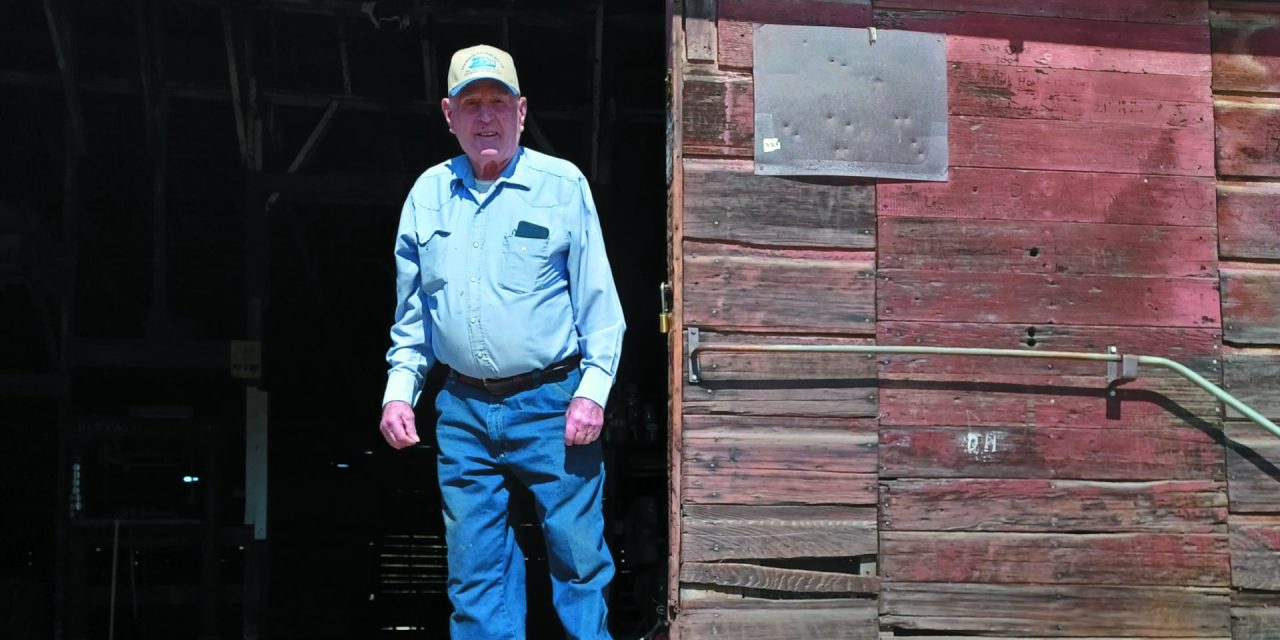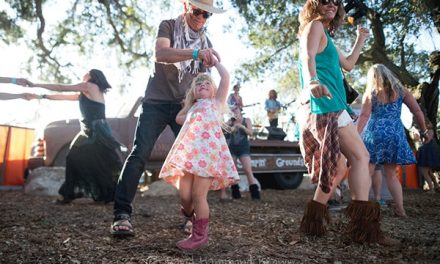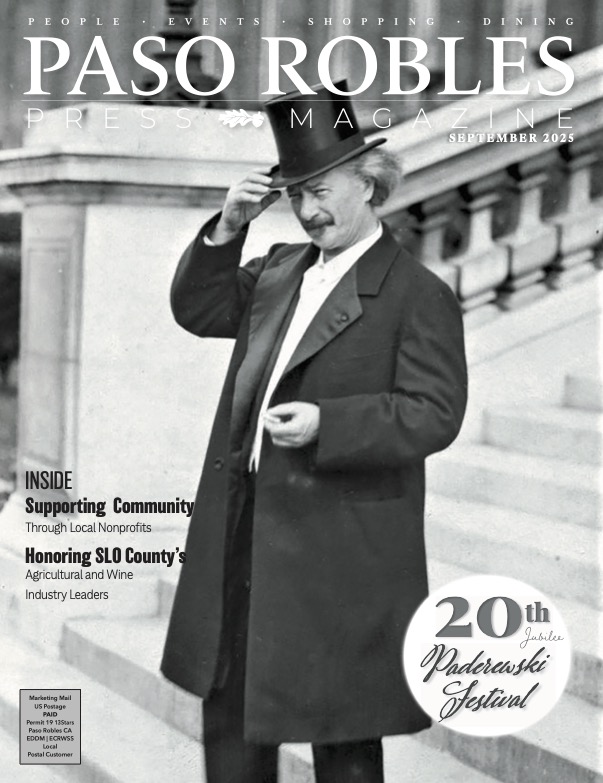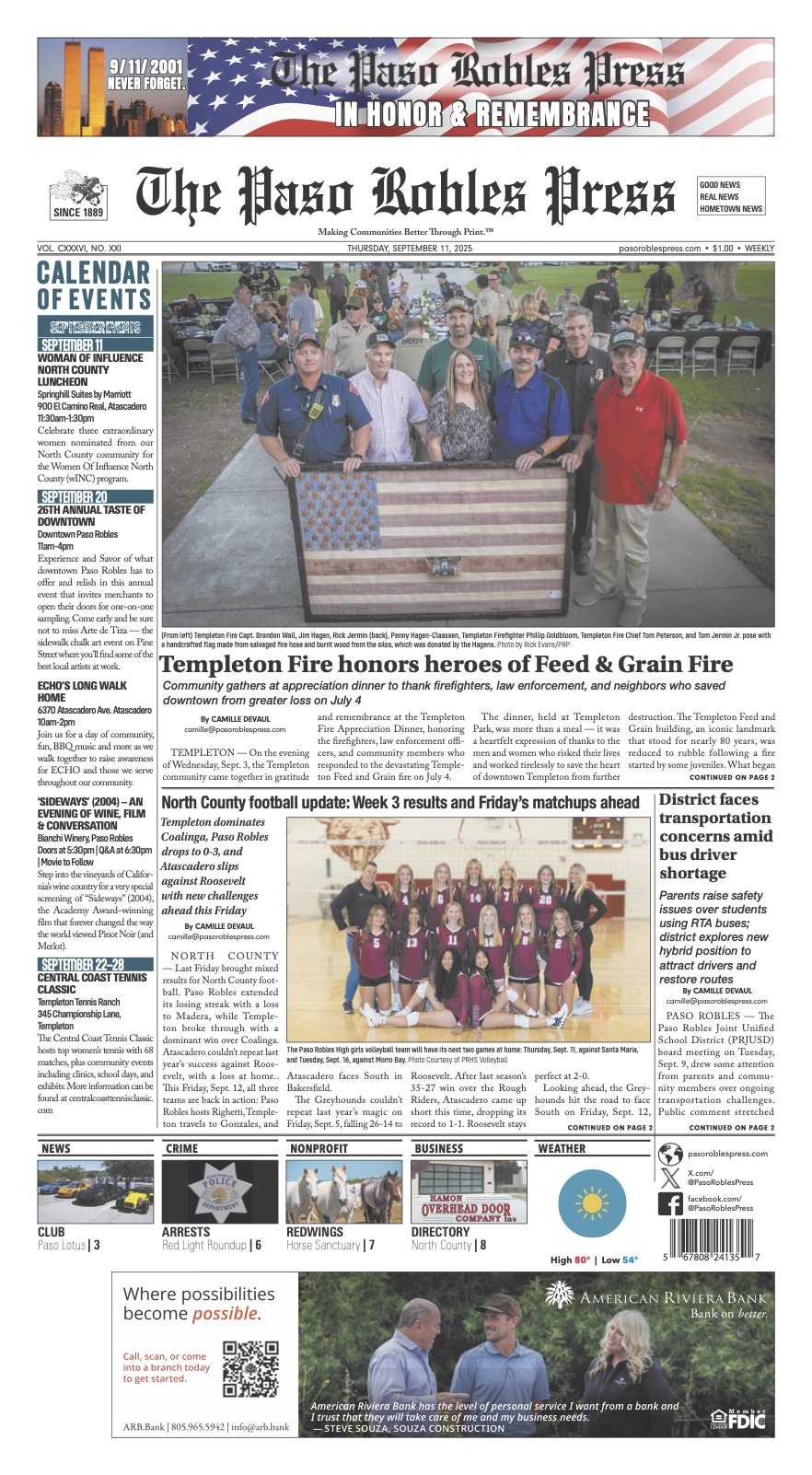By Lynne Schmitz
At 91 years of age, Everett Reasons is alert and has a good memory of his long life. He was born in Parkfield in January 1933. The family lived with their nine children (he was the middle child) near the town hall. The children attended Parkfield Elementary and Shandon High Schools.
He remembers being one of only three children from Parkfield on the long ride to high school as a freshman. At the age of 14, he took a summer job working on a grain harvester for Lowell Halliburton. The next couple of years, he did the same job for another rancher, Foster Jordan. After graduation in 1951, he went to work on the Dwayne Mitchell ranch. In 1958, he married Cristella then was drafted into the Army during the Korean conflict. He was sent to basic training in Fort Ord then stationed near Anchorage, Alaska at Fort Richardson, where he was a rifleman. The family lived there for a year and a half of active duty, and one of their three children was born there.
When he was sent home, he served two more years of active Army Reserve. He continued to work on the Mitchell Ranch until 1960 when he moved to another ranch near San Ardo to work for Wilbur Atkins. By then, he was divorced and had a single father living in San Miguel. In 1980, he married Marilyn, and they had two children. Everett was a volunteer San Miguel fireman for 44 years, driving fire trucks. In 1963, he had a conversation with Lloyd Van Horn, who owned the two-grain processing mills in San Miguel. Lloyd had just purchased equipment to upgrade his Southern Pacific Mill and needed help right away to move it out. He had offered the job to Everett, and thus began a 60 year career working with the Van Horn family at their mills and warehouses.
In those years, north county hills and farms were covered with grain fields and almond trees. The mills thrived, storing harvested grains, sacking them to send away by rail, and making feed for numerous types of animals. Everything was done by hand. Starting in 1965, Everett helped install new equipment to mechanize the operations. During President Eisenhower’s administration, unrest in the world led to a government program to pay mills to store grains. Van Horn stored three warehouses of wheat and milo.
In 1963, the government sold the stored grain, and it was taken out in rail cars. Then, in 1985, the government instituted the Conservation Reserve Program (CRP), which paid farmers to take land out of production and return it to wildland. Grain production dropped drastically, and business at the San Miguel mills declined by 60 percent. The advent of vineyards added another 20 percent decline. Life was changing. The mills were a family business through four generations and are now closed. Everett was the last employee. He keeps watch over his ‘home away from home’ with his memories.
PASO ROBLES PRESS MAGAZINE
Copies of Paso Robles Press Magazine are directly delivered to 23,000 readers in zip codes 93446, 93451, and 93465 and 2,000 dropped with support from advertisers and subscribers. Together, we are Making Communities Better Through Print.™
To subscribe or advertise, click here.













